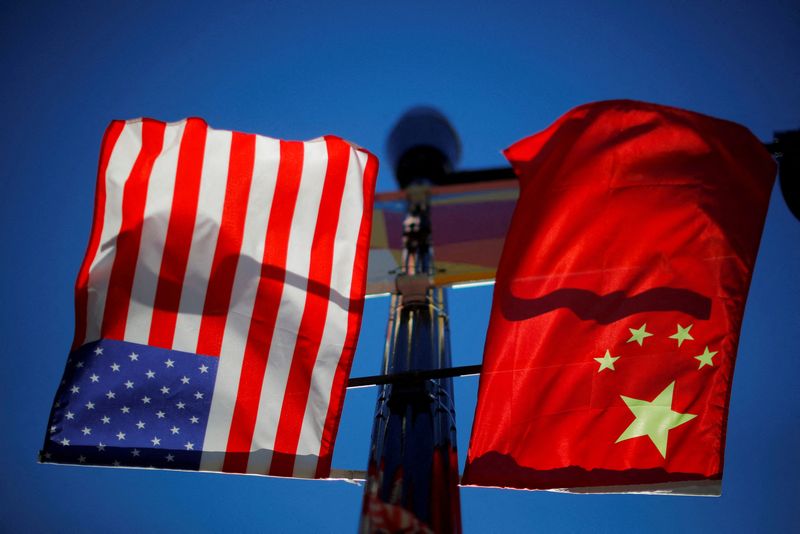By Joe Cash
BEIJING (Reuters) -China attacked U.S. President-elect Donald Trump's pledge to slap additional tariffs on Chinese goods over fentanyl flows, saying his incoming administration was pushing the blame for America's opioid crisis onto China.
Trump, who takes office on Jan. 20, said on Monday he would impose a 10% tariff on Chinese goods so that Beijing does more to stop the trafficking of Chinese-made chemicals used in the highly addictive narcotic.
He had threatened tariffs in excess of 60% on Chinese goods while on the campaign trail.
"China's position against unilateral tariff increases is consistent," He Yadong, a spokesperson for the commerce ministry, told a regular news briefing on Thursday. "Imposing arbitrary tariffs on trading partners will not solve America's own problems."
He added that the U.S. should abide by World Trade Organization rules and work with China to promote stable economic and trade relations.
Trump's comments fired the starting gun for what analysts expect to be a bruising four-year trade war, potentially much worse than his first term which saw tariffs of 7.5%-25% levied and global supply chains uprooted.
Indeed, Howard Lutnick, Trump's pick to run the Commerce Department and oversee the Office of the U.S. Trade Representative, said in a podcast interview in October that "China is attacking America" with fentanyl and suggested Trump might levy tariffs as high as 200% on China.
Editorials in China's state media this week have warned new duties could drag the world's top two economies into a mutually destructive tariff war.
DEJA VU
There was already an eerie sense of deja vu on Thursday after China's state media praised some U.S. firms for "strong collaboration" - commentary reminiscent of how tensions with the U.S. were covered by the Chinese press during the previous trade war.
Back then, U.S. corporate executives and foreign investors would scour Chinese state media for signals as to which U.S. firms might be in favour and which might be penalised as tensions ratcheted up.
The state-owned Global Times late on Wednesday highlighted Apple (NASDAQ:AAPL), Tesla (NASDAQ:TSLA), Starbucks (NASDAQ:SBUX) and HP (NYSE:HPQ).
"U.S. politicians need to pay attention to and respect the evident willingness of American businesses for economic and trade cooperation by tailoring suitable policy environments for enterprises," it said.
The China Daily also noted that Morgan Stanley (NYSE:MS) received regulatory approval in March to expand its China operations, citing this as evidence of foreign financial firms' enthusiasm for investing in China.
"Neither side was good about communicating policy directly, so business was busy looking at the tea leaves and trying to separate signal and noise in traditional and social media," a Beijing-based American executive said of the first trade war.
The executive was not authorised to speak to media and declined to be identified.
The U.S.-China trade war during Trump's first term saw China threaten to ban U.S. companies from importing, exporting and investing in China with the creation of the "Unreliable Entity List".
At the time, Global Times reported the list would target U.S. companies such as Apple, Cisco Systems (NASDAQ:CSCO) and Qualcomm (NASDAQ:QCOM). But China never followed through on the threat and to date the list has only included U.S. companies involved in the sale of arms to Taiwan.
Bo Zhengyuan, a Shanghai-based partner at consultancy Plenum, said he expected Beijing would not rush to use tools like the Unreliable Entity List in the immediate wake of any formal tariff announcement once Trump is in power, given the weak state of the Chinese economy.

But Beijing could retaliate later if it felt U.S. policymakers were harming China's commercial interests.
"There was collateral damage last time, and there will be collateral damage this time," he added.